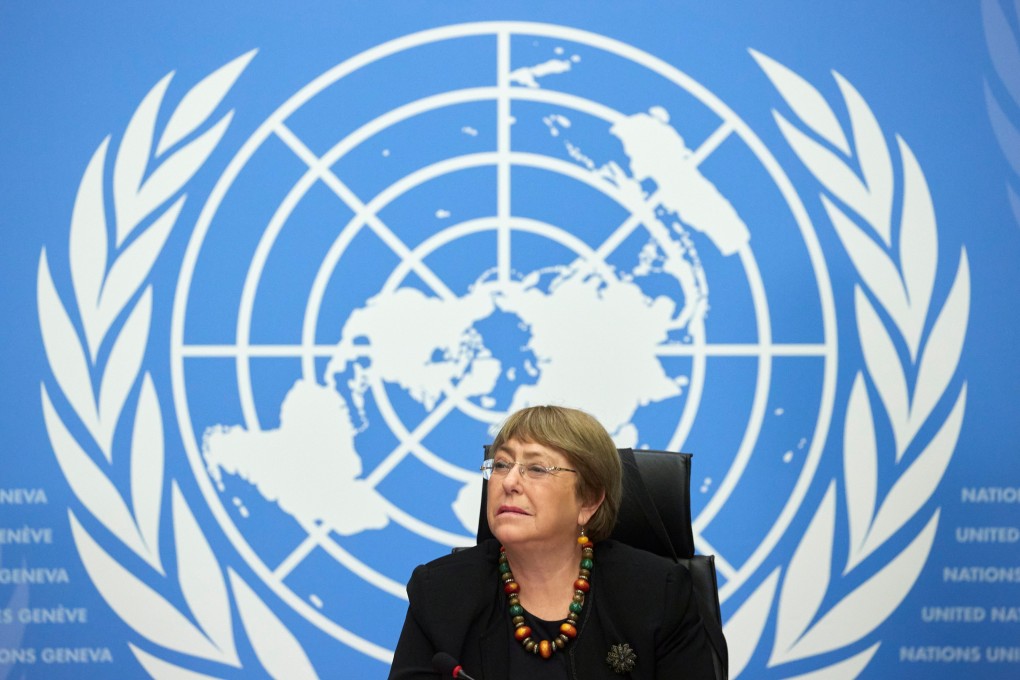Advertisement
UN team in China to prepare for likely Xinjiang visit by human rights chief Michelle Bachelet
- Five-member team will serve quarantine in Guangzhou before heading to Xinjiang
- China’s strict anti-pandemic rules spark doubts about how freely the team can move around the country and Bachelet’s visit itself
Reading Time:3 minutes
Why you can trust SCMP
93

Finbarr Berminghamin Brussels
A United Nations team has landed in China to prepare the groundwork for the long-awaited visit of its human rights chief, slated for next month.
The five-member team, which is visiting “at the invitation of the government”, set off on Sunday for Guangzhou where they will “quarantine in line with Covid-19 travel requirements”, UN human rights spokeswoman Liz Throssell confirmed to the Post.
Once out of quarantine, they are “due to visit the Xinjiang Uygur autonomous region”, Throssell said.
Advertisement
The UN’s top human rights official, Michelle Bachelet, had been negotiating with Beijing since September 2018 about a visit to Xinjiang, where some 1 million mainly Uygur Muslims are alleged to have been held in mass detention camps. China rejects all such claims and calls them politically motivated.
In March, the former Chilean president announced that she had “recently reached an agreement with the government of China for a visit” in May, including to Xinjiang.
Advertisement
Advertisement
Select Voice
Select Speed
1.00x
